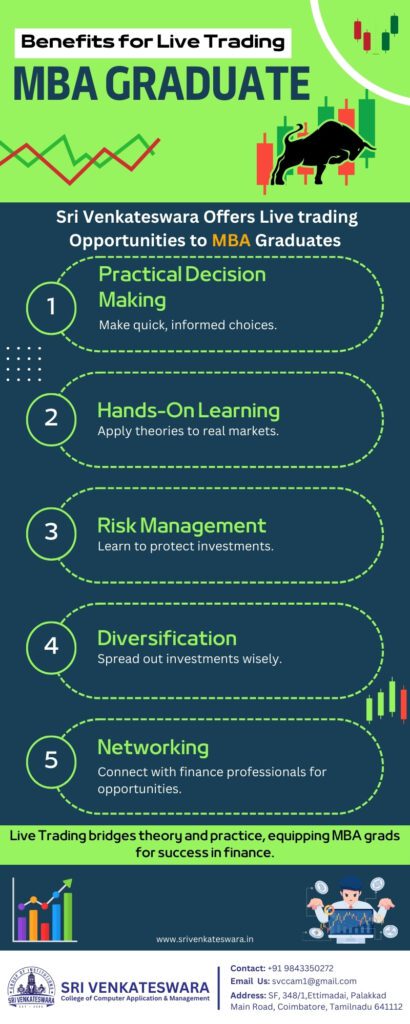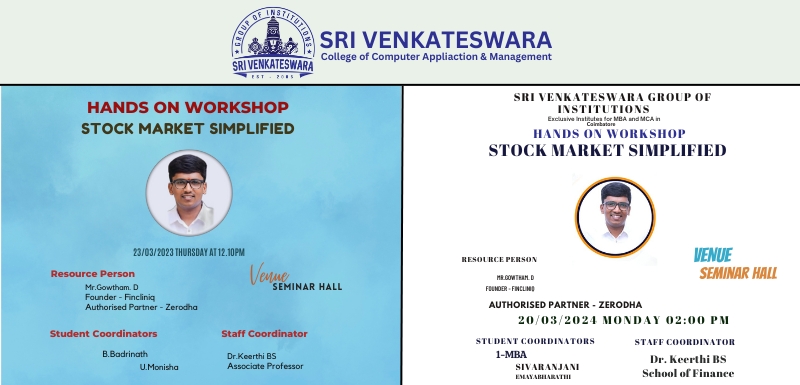Dr. Keerthi B S
Sri Venkateswara College of Computer applications and Management
Experiential learning is a valuable tool for MBA graduates looking to enhance their practical skills and
understanding of real-world business scenarios. In recent years, colleges and universities have integrated live trading experiences into their curriculum to provide students with hands-on learning opportunities. These programs allow students to apply theoretical knowledge to real financial markets, gaining valuable insights and skills that can be directly applied in their future careers.
The value of experiential learning in live trading for MBA Graduates
Participating in live trading not only offers MBA graduates a hands-on experience but also cultivates critical thinking, decision-making, and risk management skills essential in the competitive business world. Through these simulations, students can witness the consequences of their strategic choices in real-time, enabling them to develop a deeper understanding of market dynamics and investment strategies. The exposure to market fluctuations and complexities fosters adaptability and resilience, preparing graduates to navigate unpredictable challenges in their professional lives. Moreover, the practical insights gained from live trading exercises provide a competitive edge in the job market, demonstrating a candidate’s ability to translate academic knowledge into tangible results.
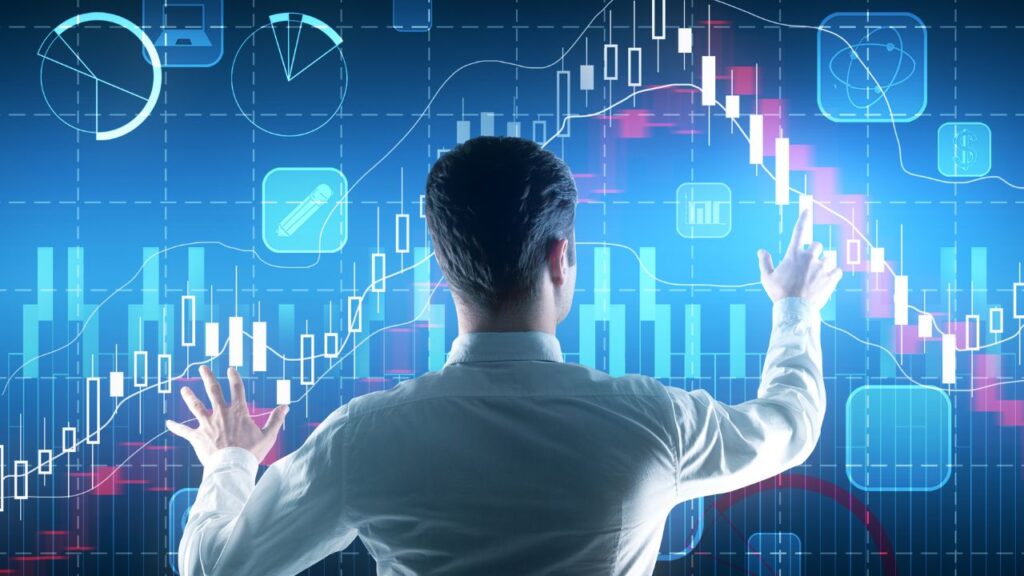
Collaborating with industry experts for real-world insights
Collaborating with industry experts adds immense value to the live trading experience for MBA graduates. By engaging with industry experts, students can gain valuable perspectives, practical tips, and refined strategies that go beyond theoretical concepts. This collaboration bridges the gap between academia and industry, offering students a holistic view of the financial landscape and preparing them for the challenges of the competitive business world. Industry experts can provide mentorship, guidance, and networking opportunities that enhance students’ experiential learning journey, equipping them with the skills and confidence to navigate the complexities of live trading effectively.
Analyzing the impact of live trading on career prospects
The practical experience gained through live trading during the MBA program can significantly impact
students’ career prospects. Employers highly value candidates with real-world trading experience, as it
demonstrates practical skills, decision-making abilities, and the capacity to navigate the challenges of the
financial market. Engaging in live trading equips students with a competitive edge in the job market,
setting them apart from other candidates with solely theoretical knowledge. By immersing themselves in
hands-on trading activities, MBA graduates not only enhance their technical expertise but also develop critical thinking, risk management, and adaptability skills that are highly sought after by employers. Overall, the experiential learning acquired through live trading can pave the way for successful career opportunities in the finance industry.
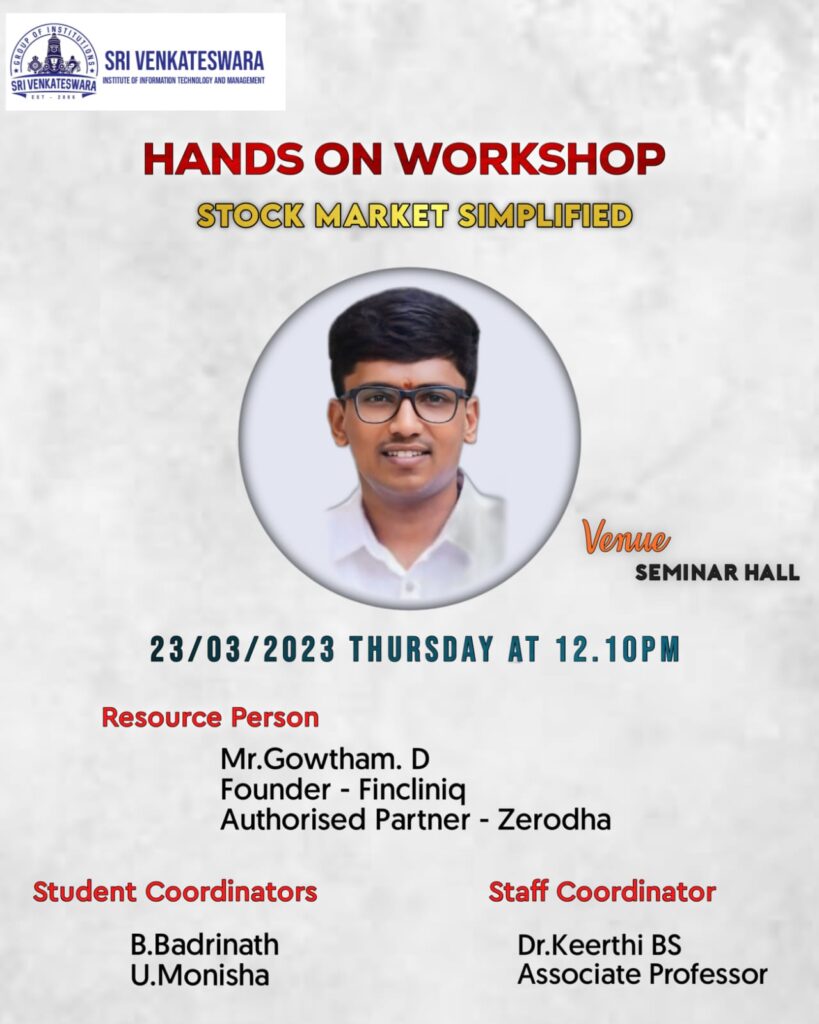
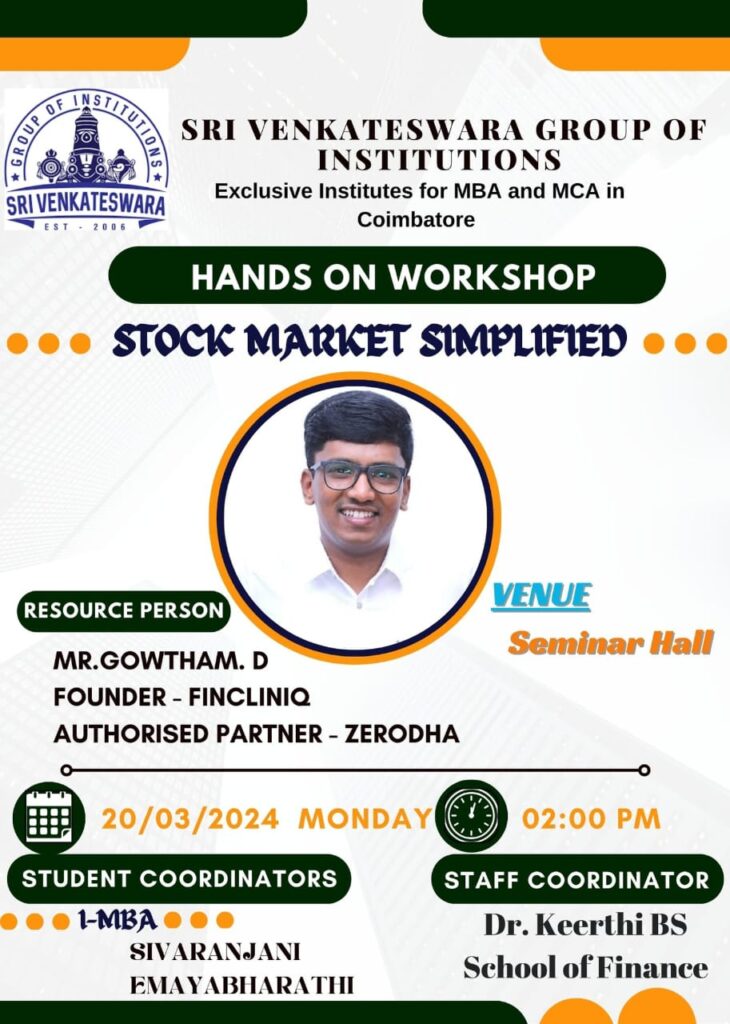
Conclusion: Leveraging live trading for a competitive edge in the professional world
In conclusion, incorporating live trading experiences into the MBA curriculum provides students with a
unique advantage in the competitive landscape of the professional world. The exposure to real-time market scenarios not only enhances technical skills but also fosters essential qualities like decision-making and adaptability. By immersing themselves in the practical aspects of trading, MBA graduates acquire a holistic understanding of the financial markets, making them more desirable candidates for prospective employers. Leveraging the hands-on experience gained through live trading can position individuals for success in the finance industry and open doors to lucrative career opportunities at SVCCAM.
